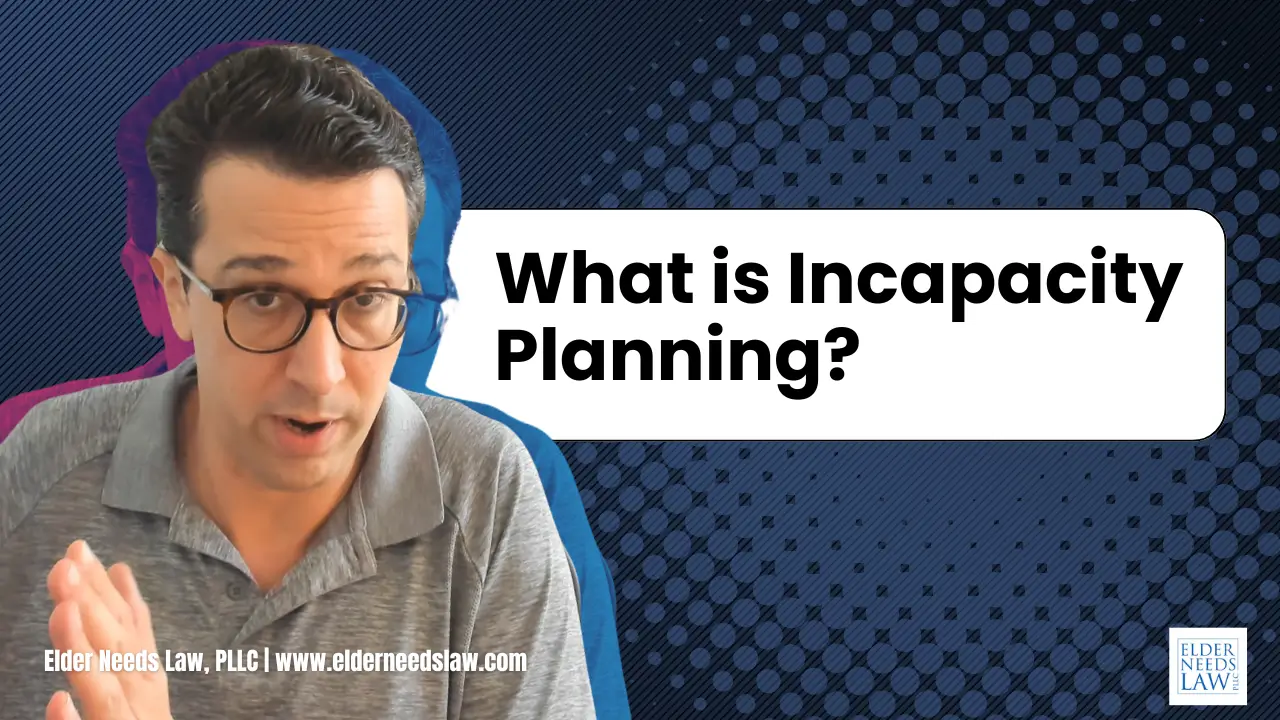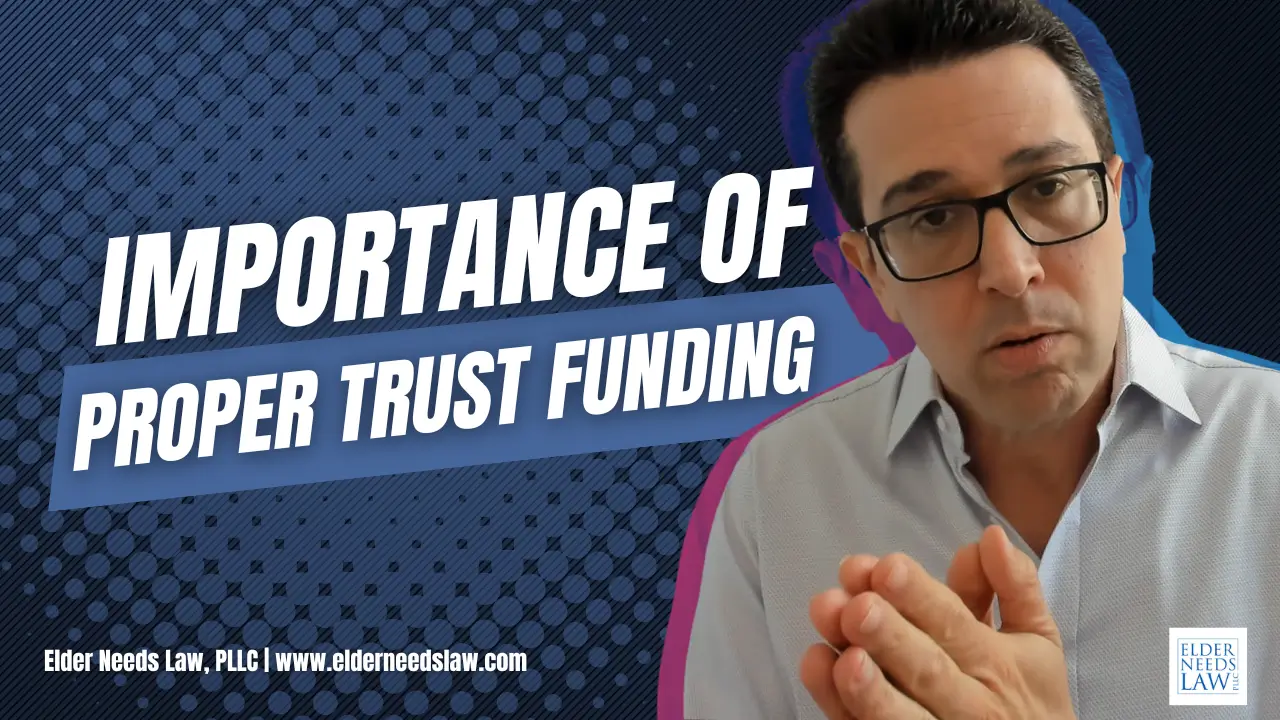Incapacity Planning in Florida: The Three Essential Documents You Need Today

Most people think about what happens to their assets after they pass away—who inherits the house, how to avoid probate, and how to distribute their belongings. While these questions matter, there's something far more urgent that deserves your attention: Who will make decisions for you if you can't make them yourself?
This is where incapacity planning comes in, and it's arguably the most vital part of preparing for your future.
What Is Incapacity Planning?
Incapacity planning sits within the broader category of estate planning, but it focuses on a specific scenario: what happens when you're still alive but unable to handle your own affairs. Whether due to a sudden accident, illness, or the gradual effects of aging, there may come a time when you need someone else to step in and act on your behalf.
Without the right documents in place, your loved ones could face significant obstacles—including the possibility of going to court to obtain guardianship, which is expensive, time-consuming, and stressful.
The Three Pillars of Incapacity Planning in Florida
In Florida, a comprehensive incapacity plan includes three key documents:
1. Healthcare Surrogate Designation
This document names the person who can make medical decisions for you when you're unable to do so yourself. Your healthcare surrogate will have the authority to:
- Access your medical records
- Communicate with doctors and hospital staff
- Consent to medical treatment
- Make decisions about withdrawing or continuing treatment
In other states, this document might be called a healthcare proxy, but in Florida, it's officially known as a healthcare surrogate designation. This person becomes your voice in medical matters, ensuring your wishes are honored when you can't speak for yourself.
2. Medicaid Compliant Durable Power of Attorney
A standard power of attorney allows someone to manage your finances and handle certain legal matters. However, if you or your family might ever need assistance paying for long-term care—whether at home or in a facility—a basic power of attorney won't be sufficient.
A Medicaid compliant durable power of attorney goes further. It includes special provisions that allow your appointed agent to engage in sophisticated planning strategies to help you qualify for Medicaid benefits without depleting all your assets first. This might include:
- Managing your real estate and other property
- Handling financial transactions and accounts
- Working with an elder law attorney to structure assets appropriately
- Taking steps to protect your resources while meeting Medicaid requirements
This specialized document is crucial for families who want to preserve some of their hard-earned assets while still accessing the care they need.
3. Living Will
Don't confuse this with a last will and testament. A living will addresses a specific set of circumstances: what you want to happen if you're being kept alive by machines and facing one of these conditions:
- End-stage medical condition
- Persistent vegetative state
- Terminal illness
In these limited situations, you get to decide whether you want life-prolonging measures continued or withdrawn. It's your choice, and documenting it now spares your family from having to guess what you would have wanted during an already difficult time.
Separating Healthcare and Financial Decision-Making
Here's something many people don't realize: the person you choose to make healthcare decisions doesn't have to be the same person who handles your financial affairs. In fact, these roles often require different skills and temperaments.
Your healthcare surrogate needs to be someone who:
- Can remain calm under pressure
- Understands your values and wishes regarding medical care
- Can communicate effectively with medical professionals
Your financial agent should be someone who:
- Handles money responsibly
- Pays attention to details
- Can work with attorneys and government agencies if needed
Sometimes one person fits both roles perfectly. Other times, it makes more sense to divide these responsibilities between two different trusted individuals. There's no one-size-fits-all answer—the right choice depends on your unique family situation and the strengths of the people in your life.
Why You Can't Wait on This
Unlike estate planning documents that take effect after you pass away, incapacity planning documents are designed to help you while you're still alive. If you become incapacitated without these documents in place, your family will need to petition the court for guardianship—a public, expensive, and emotionally draining process that can be avoided entirely with proper planning.
Many people already have a will or trust but haven't updated their power of attorney or healthcare documents in years, or they have basic versions that don't include the protections needed for Medicaid planning. If that sounds like your situation, it may be time to address just the incapacity planning component of your estate plan.
Florida-Specific Guidance for Your Situation
Whether you're concerned about the cost of assisted living, want to protect your home and savings, or simply want to ensure your family isn't left scrambling if something happens to you, putting these three documents in place should be your first priority.
The peace of mind that comes from knowing you've protected yourself and your family is invaluable. Your loved ones will thank you for making their job easier during what would otherwise be one of the most stressful times of their lives.
Ready to protect yourself and your family?
For more in-depth information about Medicaid planning and protecting your assets, check out the book "How to Get Medicaid to Pay for Some of Your Long-Term Care Expenses" available on Amazon.
To schedule a consultation or get answers to your specific questions, visit:
With four convenient office locations throughout Florida and the ability to serve clients remotely anywhere in the state, getting the protection you need has never been easier.
This article is for informational purposes only and does not constitute legal advice. Florida laws regarding incapacity planning, powers of attorney, and Medicaid eligibility are complex and subject to change. Please consult with a qualified Florida attorney to discuss your specific situation.







